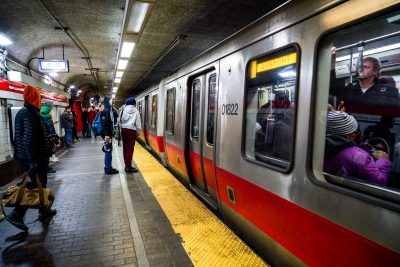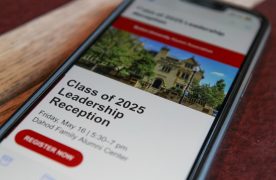
The Greater Boston Chamber of Commerce announced in a press release Thursday that it would be collaborating with the Conservation Law Foundation and the Massachusetts Bay Transportation Authority Advisory Board to monitor the MBTA’s progress with its 2017 strategic plan.
The plan was created by the MBTA’s Fiscal and Management Control Board, which was established by the Massachusetts State Legislature to address service issues after the T service failures during the winter of 2015.
The FMCB strategic plan was legally mandated as part of the FMCB’s mission to fix problems with the T that were outlined by Gov. Charlie Baker’s special panel on the MBTA in February 2015.
These problems included an unsustainable budget, issues with contracts, insufficient practices in the workplace and a lack of focus on customers, according to the FMCB webpage.
The three organizations will release their first report in the first quarter of 2019 and will create an annual report after that.
The GBCC explained that it recognizes that each organization in the collaboration represents the MBTA’s “diverse and broad constituency” of its riders, as well as each organization’s part as a stakeholder in MBTA services.
Paul Regan, executive director of the MBTA Advisory Board, said the board will bring its many years of experience accounting for the MBTA’s fiscal affairs to bear in this new monitoring effort.
“We have been doing this for a very long time,” Regan said. “In various points in our history, we actually had significant oversight of the MBTA budget and capital spending plans.”
The collaborative committee, Regan said, is well equipped to analyze the MBTA’s spending plans.
“Our expertise is a pretty good understanding of MBTA operations and capital and operational spending,” he said. “So, we can look at their budget and weigh in on what is real and what isn’t likely to happen, based on our experience and our knowledge of how the T operates.”
Regan said he thinks reliability is the most pressing issue facing the T.
“I think that if the strategic plan addresses the reliability of the system and gets the MBTA to a point where people will go with confidence, knowing full well that they will be able to get to wherever their destination is on time and for an affordable price, if we can get there and stay there, that is a major accomplishment of the strategic plan,” he said.
Several locals said they thought there was a need for more improvements in MBTA services, although they said that none of them had heard of the FMCB’s strategic plan.
Tiffany Burnell, 43, said she thinks the MBTA service is “ridiculous” because it is so unreliable.
“It took me 45 minutes to go two stops today,” the Cambridge resident said. “The buses don’t show up when they’re supposed to, the drivers don’t tell you anything. It’s like you’re being held hostage by the MBTA when that is the only way to get around.”
Joshua Kays, 27, said he was frustrated with delays in the T, which was one of the targets of the strategic plan.
“I know a lot of the apps and stuff are off the times,” the Allston resident said. “That’s just one frustrating thing.”
Fenway resident Greg Jimmie, 25, said he thought the biggest problem was busses and trains arriving late.
“I mean, sometimes [the service is] OK, but it’s unreliable,” Jimmie said. “On good days, it’s good. On bad days. it’s really bad. I take the Silver Line to work, and a lot of days I will show up, and there will be no bus for like 10 or 15 minutes, and I’ve got to get to work.”











